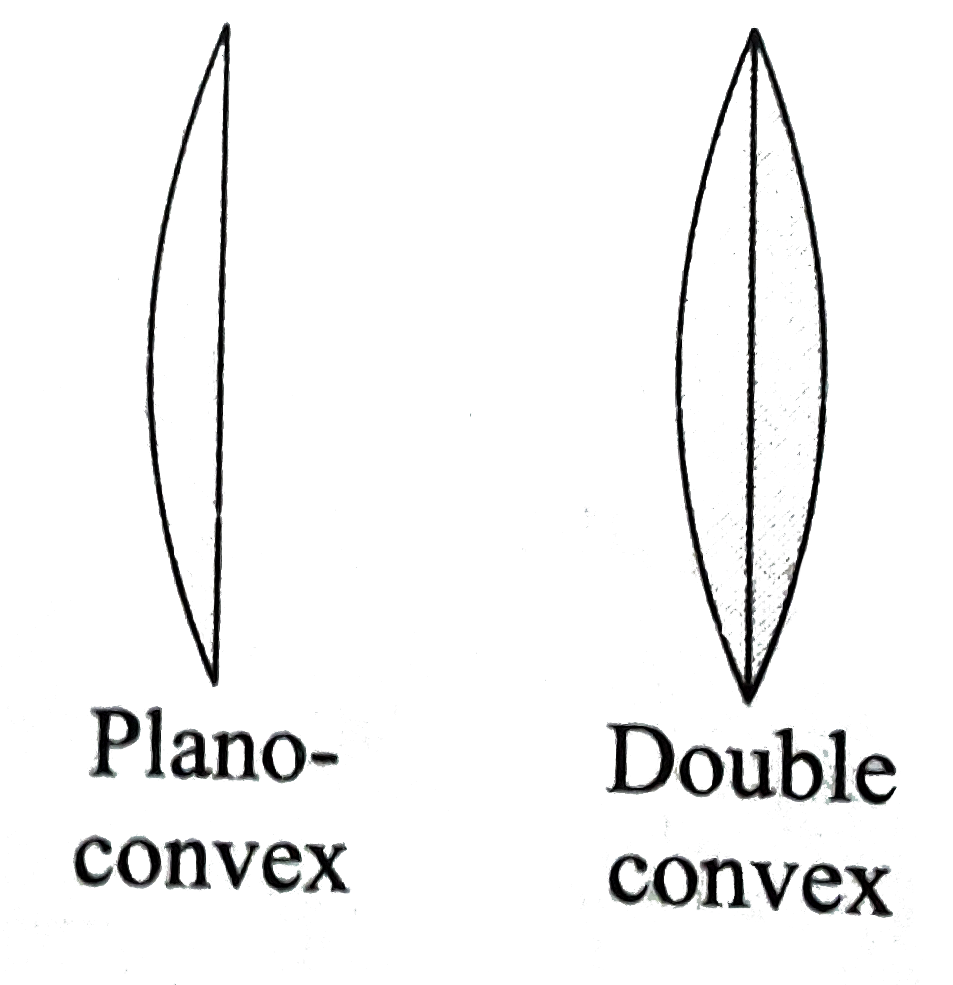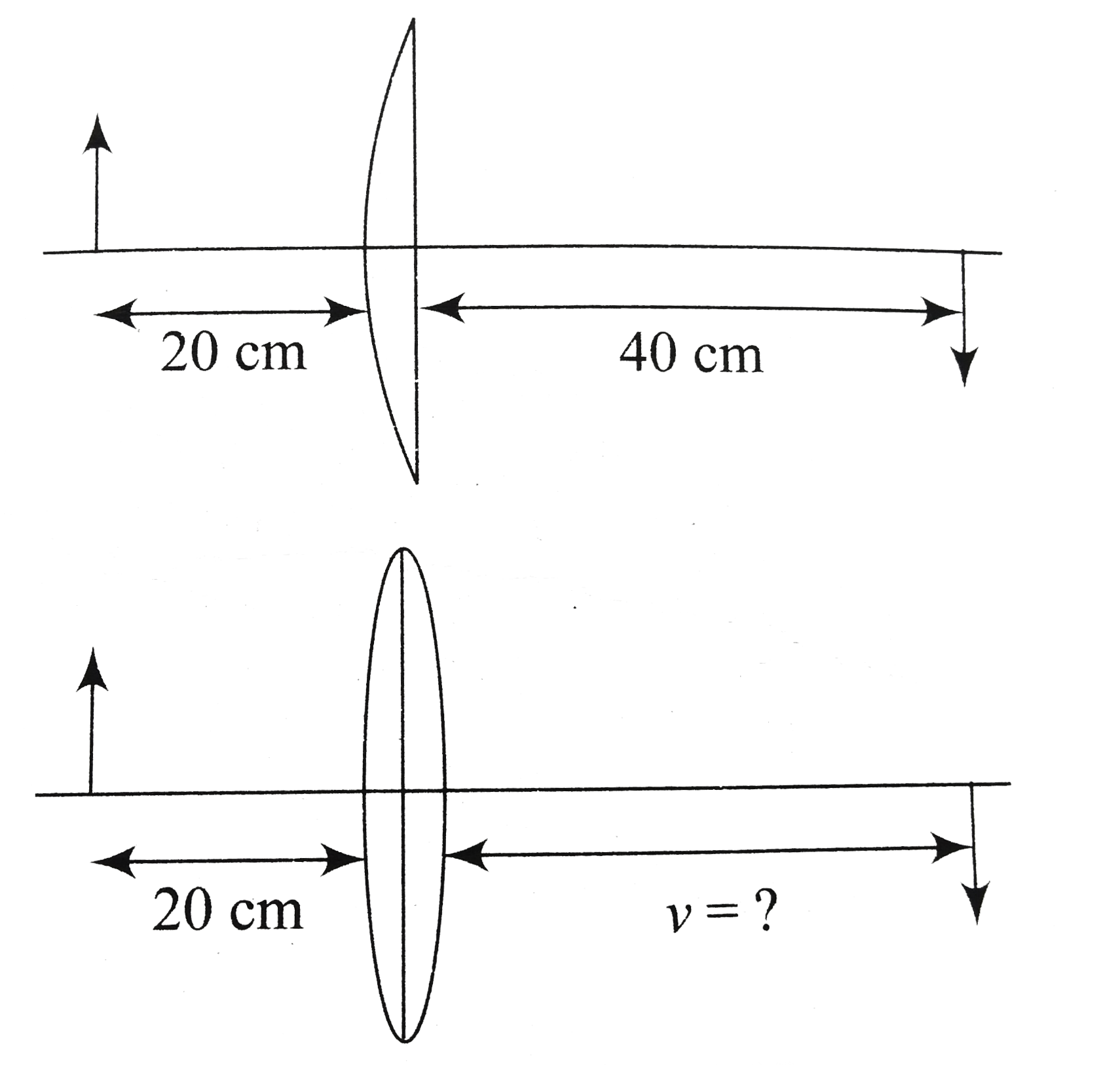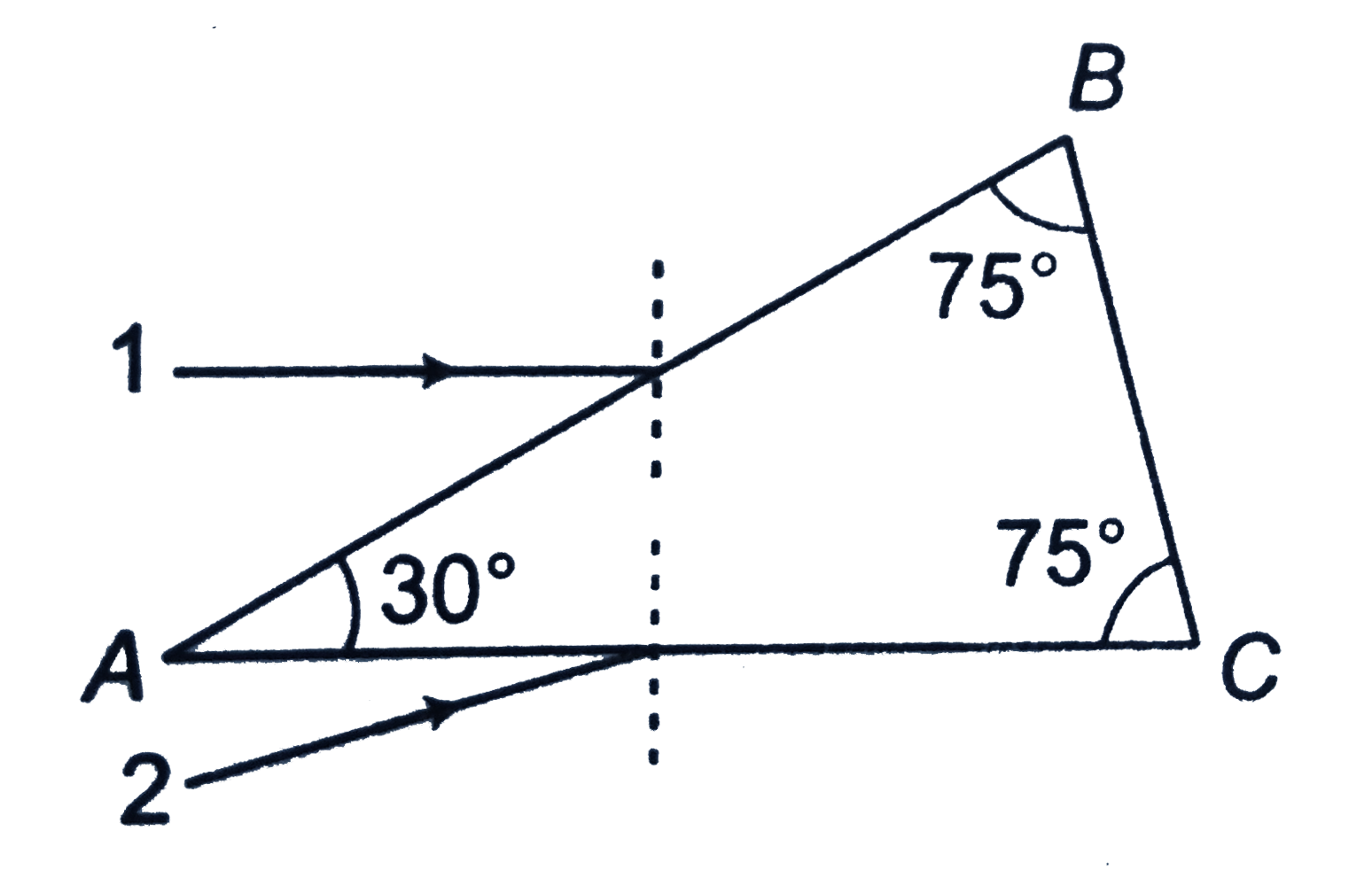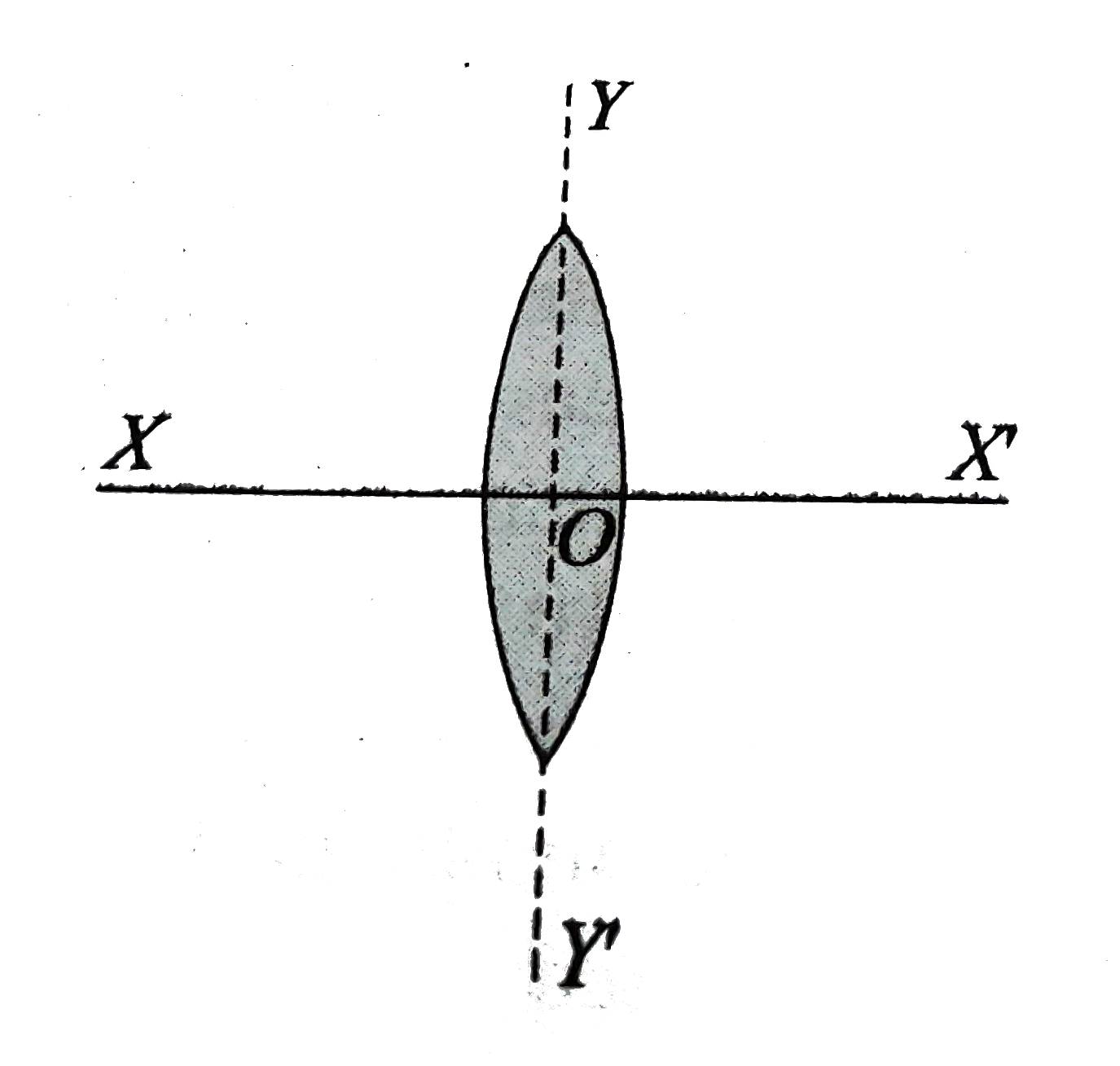You are given two identical plano-convex lenses. When you palce an object 20cm to the left of a single plano-convex lens, the image appears 40cm to the right of the lens. You then arrange the two plano-convex lenses back to back to form a double convex lens. If the object is 20cm to th eleft of this new lens, what is the approximate location of the image?

10cm to the right of the lens
20cm to the right of the lens
80cm to the right of the lens
80 cm to the left of the lens
The correct Answer is:a.
1f=1v−1u
1f=140−1(−20)
⇒f=403 For length for the combination,
feq=203
1feq=1v−1u
⇒3020=1v+120
1v=320−120
v=10cm (to the right)

Topper's Solved these Questions
- GEOMETRICAL OPTICSBOOK - CENGAGE PHYSICSCHAPTER - GEOMETRICAL OPTICSEXERCISE - Assertion-Reasoninig
2 Videos
- GEOMETRICAL OPTICSBOOK - CENGAGE PHYSICSCHAPTER - GEOMETRICAL OPTICSEXERCISE - Linked Comprehension
51 Videos
- GEOMETRICAL OPTICSBOOK - CENGAGE PHYSICSCHAPTER - GEOMETRICAL OPTICSEXERCISE - Subjective
26 Videos
- FRICTIONBOOK - CENGAGE PHYSICSCHAPTER - FRICTIONEXERCISE - QUESTION BANK
1 Videos
- GRAVITATIONBOOK - CENGAGE PHYSICSCHAPTER - GRAVITATIONEXERCISE - Question Bank
39 Videos
Similar Questions
Two plano-convex lenses of focal lengths 20cm and 30cm are placed together to form a double convex lens. The final focal length will be
View SolutionFind the refractive index of the material of a plano-convex lens, if the radius of curvature of the convex surface is 20 cm and focal length of the lens is 60 cm?
View Solution
Knowledge Check
The plano-convex lens of focal length 20cm and 30cm are placed together to form a double convex lens. The final length will be
A12cmB60cmC20cmD30cmA convex lens of focal length 16 cm forms a real image double the size of the object. The image distance of the object from the lens is
A32 cmB24 cmC20 cmD8 cmThe radius of curvature of the curved surface of a plano-convex lens is 20cm. If the refractive index of the material of the lens be 1.5, it will
A30cmB50cmC20cmD40cm
What is the refractive index of material of a plano-convex lens, if the radius of curvature of the convex surface is 10 cm and focal length of the lens is 30 cm ?
View SolutionWhat is the refractive index of material of a plano-convex lens , if the radius of curvature of the convex surface is 10 cm and focal length of the lens is 30 cm ?
View SolutionAn object is kept at 60 cm in front of a convex lens. Its real image is formed at 20 cm from the lens . Find the focal length and power of the lens.
View SolutionTwo convex lenses placed in contact form the image of a distant object at P. If the lens B is moved to the right, the image will

View SolutionTwo convex lenses placed in contact form the image of a distant object at P. If the lens B is moved to the right, the image will

View Solution
